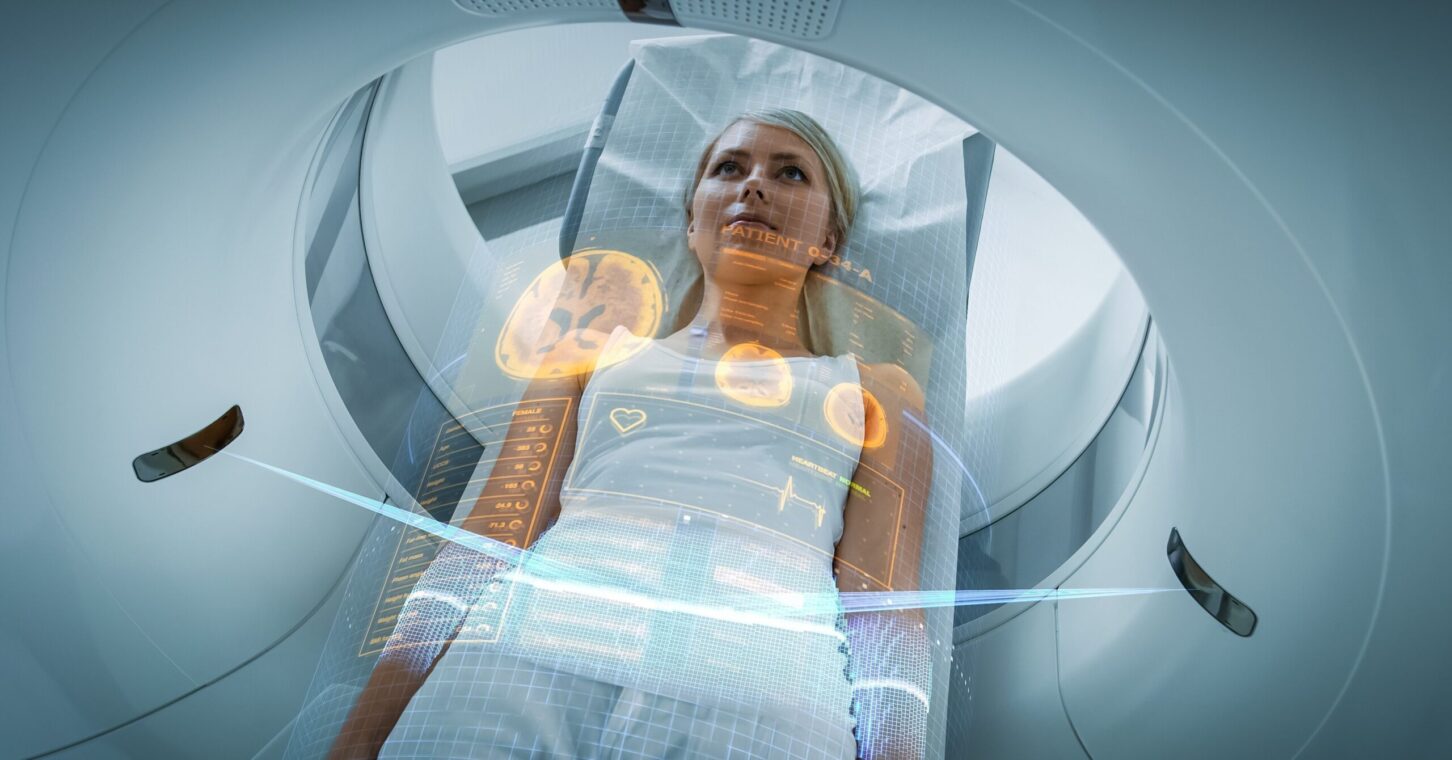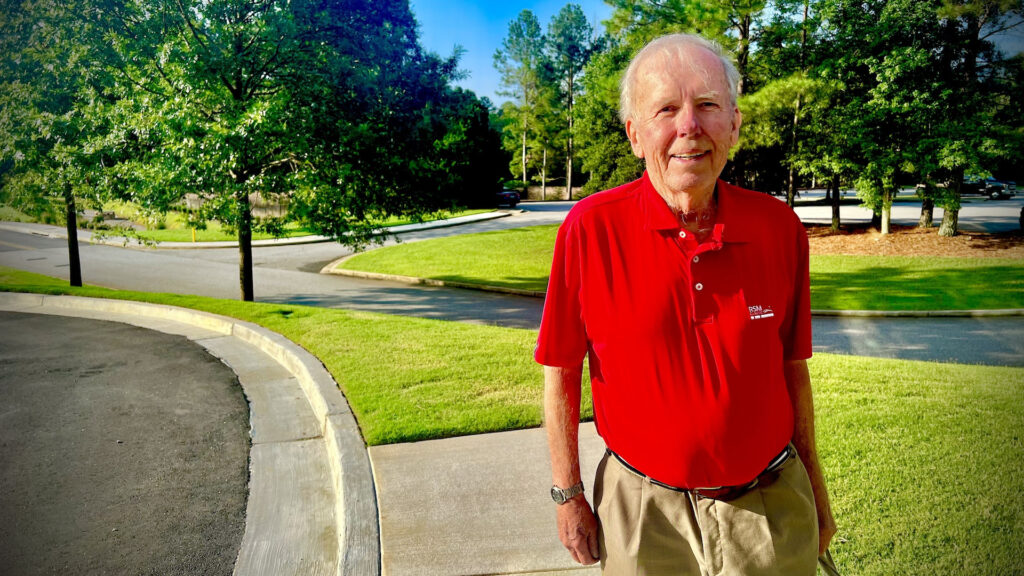
Monroe resident Gary Galloway has Stage 4 lung cancer.
That’s a grim diagnosis, but Galloway’s treatments have proven effective and, as he puts it, he’s outlasted his originally stated expiration date by many years.
But with the good news comes some not-so-good news.
Galloway said one of the biggest threats to his health and physical well-being is, perhaps surprisingly to some, a Georgia law.
Galloway commutes to Athens, where he’s treated at Athens’ University Cancer and Blood Center (UCBC). Doctors there have attended to him since November 2016.
“I could glow in the dark. I have had so much radioactive glucose pumped into me over the course of time,” Galloway said.
“I am probably ready for Halloween.”
UCBC offers everything Galloway says he needs, except for a PET scanner. Galloway’s ongoing care regimen includes quarterly PET scans. The nearest one — actually, the only PET scanner in the vicinity — is two miles away at Piedmont Athens Regional Medical Center (PARMC). For those scans, Galloway must go there.
UCBC then takes Galloway’s scans, where they are then examined and documented for future use.

“My life does depend on this,” Galloway said.
“It is a valuable diagnostic tool to determine if there has been any friskiness of the cancer.”
UCBC would like to add a PET scanner, but a Georgia law known as Certificate of Need stands in its way. The law prevents healthcare providers from adding this and other kinds of equipment without first getting state approval.
And, as baffling as this sounds, the law also grants other healthcare providers the right to oppose these requests. UCBC has applied for a PET scanner at least two times, each time facing opposition from Piedmont Athens. Each request has been denied.
Galloway recently addressed the Georgia Senate Study Committee on CON. He said PET scanners are in high demand. Having too few of them shortchanges patients.
“Piedmont Athens Regional has repeatedly challenged [UCBC’s] requests while hiding behind the curtain of CON laws,” Galloway said.
DCH spokeswoman Fiona Roberts said she could not comment on matters that are pending.
WHAT IS CON?
The Georgia General Assembly implemented CON laws in the late 1970s. They require hospital personnel to prove that the local community needs new healthcare services before DCH officials allow them to move forward. This can block the construction of new hospitals.
Forty years ago, government officials said CON would stop communities from duplicating unnecessary services.
CON laws, for instance, have prevented Lee County from having its own hospital to compete against Phoebe Putney Memorial, in adjacent Dougherty County.
In June, Georgia Alliance of Community Hospitals president and CEO Monty Veazey said the laws of the free market do not apply to hospitals and that’s why CON laws are necessary.
“Study after study shows the number of cases you do, the more efficient you become and the safer it is for the patient,” Veazey said at the time.
“If you allow the new hospital to come in and pull those patients away then you may have a less quality outcome.”
CON critics, however, say the law stifles competition and empowers bureaucrats. The Arlington, Va.-based Mercatus Center, which promotes market-oriented ideas, said CON laws nationwide “tend to restrict access to healthcare, make services more expensive and undermine the quality of care.”
WHAT A LOT OF PEOPLE DON’T REALIZE ABOUT CON
CON laws apply not only to hospitals but to medical equipment.
“Before I got into this research area, I was aware of CON,” said Thomas Stratmann, a Mercatus senior research fellow.
“I was not aware of the extensiveness of it going to MRI machines and PET scanners and things like that.”
Matthew Mitchell is a senior Mercatus-affiliated scholar who researches CON law nationwide. He’s testified before several state legislatures as well as Congress. Mitchell said CON laws can restrict a medical facility from having, among many other things, syringes, gamma knives, hospital beds, hypodermic needles, linear accelerator radiology and Magnetic Source Imaging scanners.
OVERBOOKED AND NO TIME TO SPARE
UCBC staff did not respond to repeated requests for comment via phone, email and one in-person visit.
The Piedmont Athens staff scheduled an interview but, citing a calendar conflict, postponed it. Over the course of two additional weeks, Piedmont staff members did not respond to phone calls, one in-person visit or even emailed questions.
Galloway said that on a couple of occasions, he too had an appointment with Athens Piedmont staff…only to have them postpone.
“I have had one or two occasions when I showed up there [for the PET scan] and was told ‘Sorry we can’t see you today. We’re overbooked,’” Galloway said.
“I drive 30 miles from where I live to Athens to get treated. If I have a scheduled appointment, then let’s get the job done. Yes, that is an outlier. It has only happened once or twice, but it’s the kind of thing you don’t forget.”
Getting a PET scan scheduled in a timely manner to coincide with Galloway’s next UCBC appointment is important. And so is giving his doctors ample time to review the radiologist’s notes.
Piedmont Athens staff said in an opposition statement to the DCH this past summer, however, that UCBC’s allegations of scheduling delays at Piedmont Athens are exaggerated.
Piedmont Athens staff also said in that document that they object to UCBC having a PET scanner for various reasons. They accused UCBC of trying “to bolster the physician group’s revenues, regardless of the harmful impact on the local hospital.”
“This has been an increasing trend, as UCBC continues to hire away key PARMC staff to build its growing for-profit oncology empire. Moreover, because UCBC physicians control referrals, it is easy for UCBC to redirect patients to their owned health services and away from the local hospital. This is what happened with radiation therapy. Despite representations to the Department that the market could support three linear accelerators, once UCBC’s second unit became operational, PARMC’s radiation therapy volumes plummeted,” Piedmont Athens staff said.
“The same pattern will happen with PET/CT services if a second unit is approved in an area with a documented surplus of PET/CT units and minimal population growth. UCBC referrals annually represent 65% to 67% of PARMC’s PET/CT volumes. In all likelihood, PARMC will lose all of these referrals and become a low-volume service if UCBC’s project is approved. PARMC’s PET/CT service will face devastating financial losses of more than $2 million annually, which will impede the ability of the hospital to reinvest in its PET/CT program.”
Piedmont Athens staff also said that a provider in Covington (40 miles southwest of Athens) offers a mobile PET/CT unit. Additionally, the DCH approved a CON application for a hospital-based mobile PET/CT provider in Greene County (30 miles southeast from Athens).
Additionally, the service area is projected to have a compound annual growth rate of 3.3%, which is lower than Georgia’s (3.5%). Service area age adjusted cancer rates are lower for Clarke County (433.1 per 100,000) vs. Georgia’s (468.6).
Clarke County’s age-adjusted mortality rates (139.8 per 100,000) are lower than Georgia’s (153.4), Piedmont Athens staff said.
Piedmont Athens’ primary competitor, St. Mary’s Hospital, does not have a PET scanner. St. Mary’s spokesman Mark Ralston, citing previous evaluations, said the scanner and any associated building modifications are cost prohibitive.
MOTIVES AND CONSEQUENCES
Galloway was asked why he thinks Piedmont Athens doesn’t want UCBC to have a PET scanner.
“It is the competition that is there,” Galloway said.
“They feel like it would jeopardize their revenue stream.”
Mitchell said that — obviously — under CON people have access to fewer medical devices and technologies.
CON, Mitchell went on to say, “is a uniquely susceptible regulation to abuse.”
“If you want to open a substance abuse center, and I operate my own substance abuse center, then I can object to the other application,” Mitchell said, adding that the government is allowing anti-competitive behavior.
“That seems pretty crazy.”
Stratmann, meanwhile, said that when medical facilities limit the supply of a particular commodity, such as a new machine, patients suffer.
“It is a chance to increase prices,” Stratmann said.
Hospitals can also use these situations as a way to negotiate higher rates with insurance companies, Stratmann added.
Galloway told CON Senate Study Committee members last month that his Stage 4 Non-Small Cell Lung Cancer (NSCLC) diagnosis is aggressive. Between 25% and 30% of patients die within three months of diagnosis.
“Through the course of more than 100 trips to University Cancer and Blood Center, I have observed how difficult it is for some patients to even come through the door for their appointments, so if it is possible to reduce the variables for physically challenged and ill patients, this is a win for them, their families and caregivers,” Galloway told CON Study Committee members.
“I am not a politician, and I am not an expert on the many ramifications of the Certificate of Need rules, regulations or laws, but I am a passionate patient who would prefer the comfort and convenience of one-stop shopping for my treatment in a familiar and compassionate care environment.”
Stratmann said states that have CON should phase it out over time.
“In the end, there is definitely no economic reason to have it,” Stratmann said.
“We don’t allow Burger King to say McDonalds shouldn’t open up because there is no need for their services.”